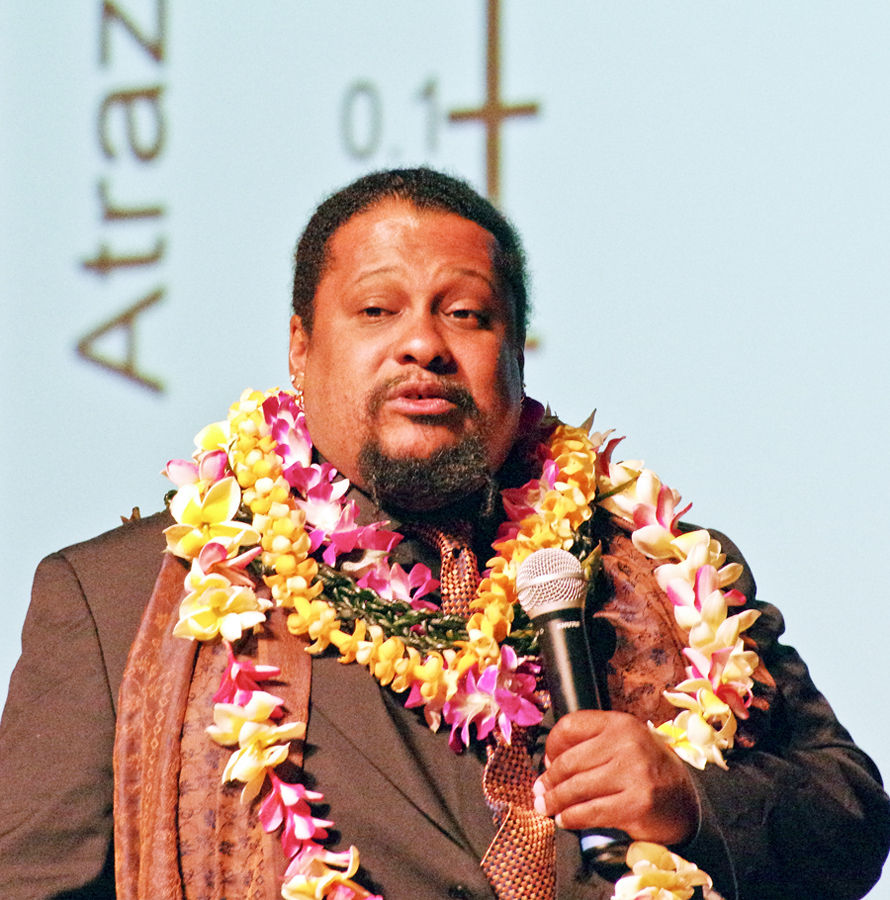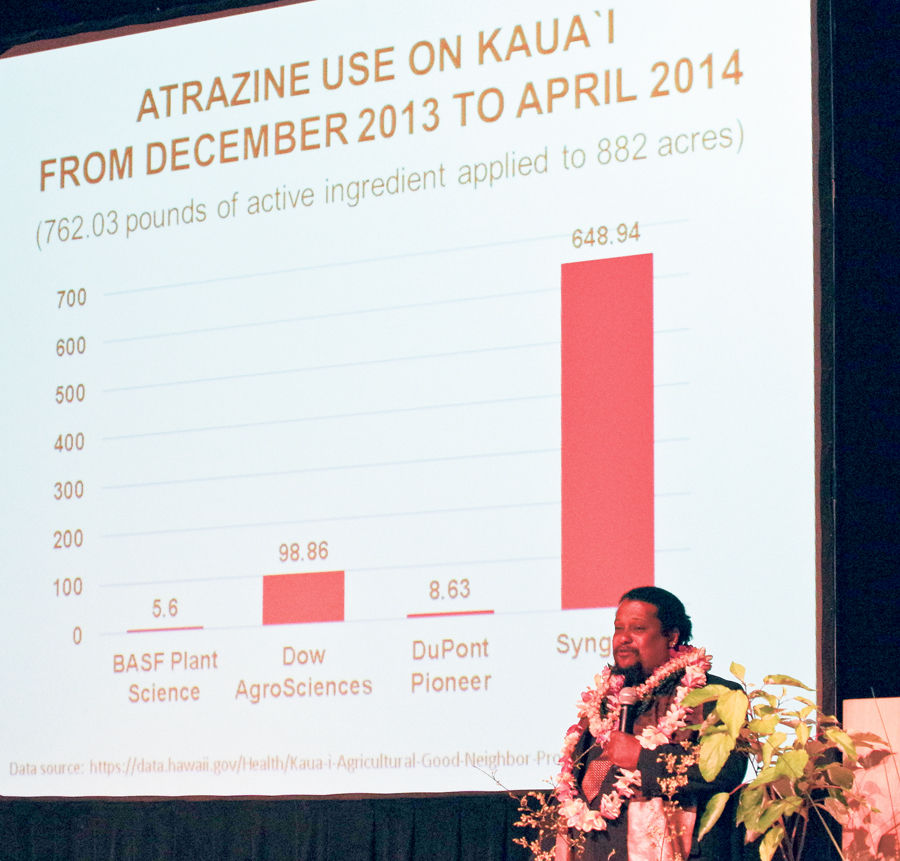LIHUE — Atrazine expert and University of California Berkeley professor Tyrone Hayes returns to Kauai to speak on the polarizing issue of pesticides.
Known for his research related to Syngenta’s chemical herbicide atrazine, Hayes will take the stage for the free event at 6:30 p.m. Wednesday at the Kauai Community College Performing Arts Center in Puhi.
Hawaii SEED President Jeri Di Pietro said the organization is thrilled to be hosting Hayes, especially on the heels of the recent New Yorker Magazine expose vindicating the professor’s claims that for the last 15 years, chemical giant Syngenta has waged a campaign to discredit him and his peer-reviewed findings.
“In light of Syngenta’s current litigation against the County of Kauai and their aggressive campaign to discredit Dr. Hayes, obvious parallel lines can be drawn about the threat to the independent research community and communities protecting their environment,” she said in a release.
Hayes’ research suggests that atrazine is an endocrine disruptor, which not only demasculinizes male frogs, but transforms them into fully functioning reproductive females, according to a release.
Hayes is also an advocate for critical review and regulation of pesticides and other chemicals that may cause adverse health effects, according to a press release.
During the seven-date statewide tour, he will be joined by local food advocates from each island. Paul Towers, from Pesticide Action Network, will be speaking as well, presenting an overview of pesticide use nationally and internationally and the significant role that Hawaii plays in open-air pesticide experimentation, according to the release.
Syngenta spokesman Mark Phillipson, however, said atrazine has been carefully studied and has no impact on human or animal health. As for Hayes’ findings, he said no one has been able to reproduce them in a lab.
“It hasn’t been replicated, and the basis of good science is that you can replicate it,” he said.
Info: hawaiiseed.org







